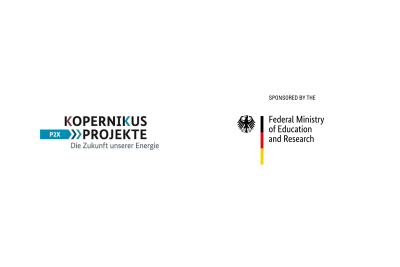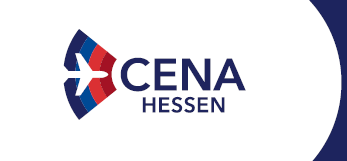On the basis of the INERATEC pilot plant for synthetic kerosene in Hessen, the industrial production of specification-compliant e-kerosene is being further developed. This will provide the basis for the broad market launch of the sustainable alternative to fossil kerosene.

P2Fuels - Power-to-Fuels
Production of specification-compliant e-kerosene
The aim of P2Fuels is to process update crude oil from carbon dioxide and hydrogen (Fischer-Tropsch Crude, FT-Crude) into specification-compliant Kerosene via refining and thus pave the way for commercial distribution. From 2024 to 2026, CENA Hessen is collaborating with leading research institutes and industrial partners on the P2Fuels project. The project is being supported by the Federal Ministry of Education and Research (BMBF) with around 8 million euros. In addition, the Hessian Ministry of Economics, Energy, Transport, Housing and Rural Areas (HMWVW) is contributing around 210,000 euros as co-financing. P2Fuels is part of the Kopernikus project P2X, which is currently in its third and final phase.
CENA Hessen is the project coordinator for P2Fuels. As part of the project, CENA Hessen is also identifying regulatory barriers to the refining of FT-Crude into specification-compliant FT-SPK, and suggesting potential solutions for them, in order to pave the way for commercialization.
Further development of production routes: SPK and Co-Processing
As part of P2Fuels, technical processes for converting FT-Crude into Kerosene are being further developed. This requires an industrial downstream supply chain that is being developed in the project specifically for the strict requirements of aviation. Two approaches are being investigated: the direct refining of FT-Crude into synthetic paraffinic keosene (SPK) (Route 1) and co-processing (Route 2), in which FT-Crude is further processed together with fossil crude oil in existing refineries.
Route 1: Construction of a refinery for ASTM-compliant e-kerosene
The core part of P2 fuels is the construction of a dedicated refinery. To this end, INERATEC's pioneering plant in the Frankfurt-Höchst industrial park will be expanded to include a refining module that will process up to 350 tonnes of FT-Crude from hydrogen and CO2 every year.
FT-Crude cannot directly be used as a fuel. Rather, just like fossil crude oil, the FT-Crude must be processed in a refinery. The plant being built for this purpose in Frankfurt-Höchst can convert up to two thirds of the FT-Crude into SPK. This kerosene meets the target parameters according to ASTM D7566 and can be blended with up to 50 percent of conventional JET A1 fuel.
Route 2: Increasing the proportion of FT-Crude in co-processing from 5 to 30 percent
In co-processing, FT-Crude is processed together with fossil crude oil in an existing refinery infrastructure. This has the advantage that existing infrastructure can be utilised and major investments can be avoided. However, there are regulatory barriers to the use of co-processing in Germany. For example, the maximum permissible proportion of FT-Crude in the refinery feedstock is currently limited to 5 percent. P2Fuels is pursuing the goal of increasing the proportion of FT components from 5 to 30 percent. To this end, trials with BP and INERATEC will demonstrate the specification conformity of the resulting fuel blend, even with a higher proportion of FT. The results will be communicated to ASTM and the Energy Institute, as the responsible standardisation institutions, with a view to increasing the FT content permitted by the standards.
Regulatory barriers for PtL-kerosene when processed in a dedicated refinery
The production and distribution of PtL fuels are influenced by a large number of regulations, such as the EU chemicals regulation REACH (Registration, Evaluation Authorisation and Restriction of Chemicals) or the requirements of the Renewable Energy Directive (RED). CENA Hessen analyses the extent to which unintended regulatory barriers arise from these regulations and, if necessary, makes proposals for the further development of legislation.
Long-term defossilisation through e-kerosene
With increasing environmental and climate protection requirements, the aviation industry is faced with the challenge of reducing its CO2 emissions. Alternative fuels are needed, as aircraft, especially on medium and long-term routes, will not be able to run on hydrogen or electricity in the foreseeable future. The synthetic crude used as feedstock for refining into E-kerosene is produced using electricity, carbon monoxide and hydrogen. If electricity from Renewable energies is used, the CO2 savings when using PtL kersosene can theoretically be almost 100 percent. P2Fuels is thus taking a decisive step towards the sustainable transformation of the aviation industry and long-term defossilisation through e-kerosene.
Partner for a sustainable future
In addition to CENA Hessen, partners in the P2Fuels project include the Germand Aerospace Center (DLR), INERATEC GmbH, Karlsruhe Institute of Technology, Provadis School of International Management and Technology AG, Aveera UG and General Electric Deutschland Holding GmbH. Associated partners in the Kopernikus P2Fuels joint research project are Sunfire GmbH, BP Europa SE, BASF SE, Andreas Stihl AG & Co. KG, CLAAS KGaA mbH and HCS Group GmbH.
About the Kopernikus projects
The Kopernikus projects are one of the largest German research initiatives for the energy transition. Their aim is to enable a clean, secure and affordable energy supply for Germany. Funded by the BMBF, they develop holistic solutions to achieve the climate targets. Experts from economy, science and civil society work together to develop climate-friendly solutions through to industrial-scale applications.
The Kopernikus project P2X is investigating power-to-X technologies that use renewable energy to convert carbon dioxide and water into other substances. The current focus is on the production of synthetic Kerosene. In the first two phases of the Kopernikus P2X project, the production of sustainable Fischer-Tropsch products was investigated using innovative processes such as CO2 capture from the air (direct air capture) and high-temperature hydrogen Electrolysis. The current, third phase of P2X is now focussing on the industrial implementation of FT products. The project is being coordinated by the Karlsruhe Institute of Technology. DECHEMA is responsible for the project office. 18 partners from industry, science and civil society organisations are involved in the project.
See more at: https://www.kopernikus-projekte.de/


Dr. Alexander Zschocke
Senior Manager Power-to-Liquid
Department
Centre of Competence for Climate, Environment and Noise Protection in Aviation (CENA Hessen)

Felicitas Koch
Project Manager Sustainable Aviation Fuels
Department
Centre of Competence for Climate, Environment and Noise Protection in Aviation (CENA Hessen)
